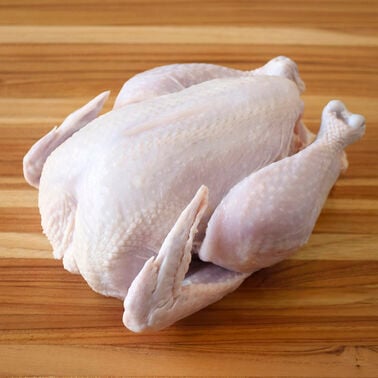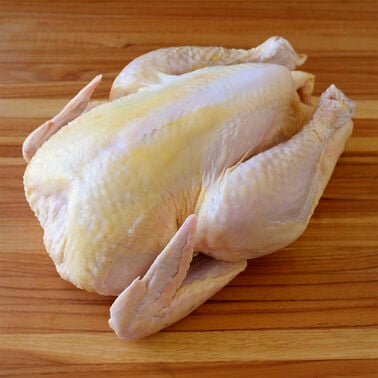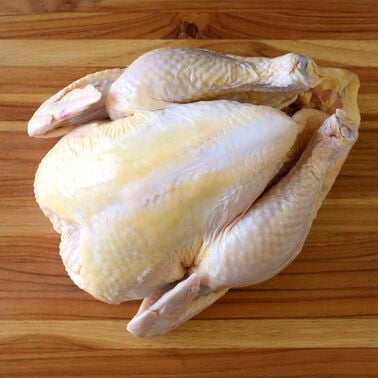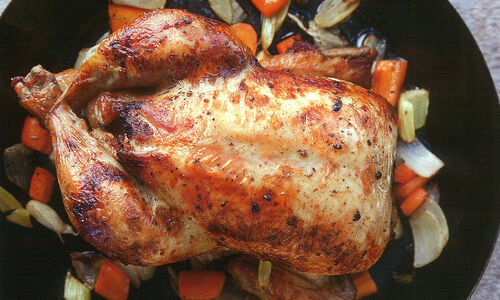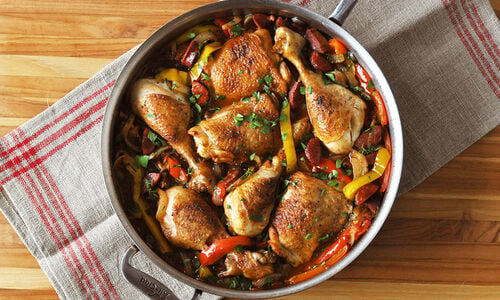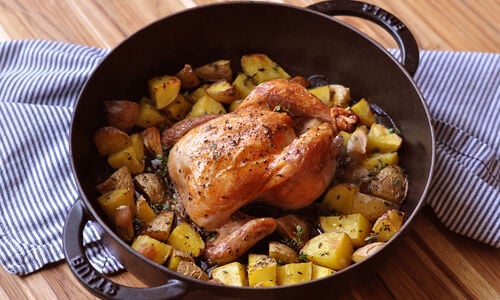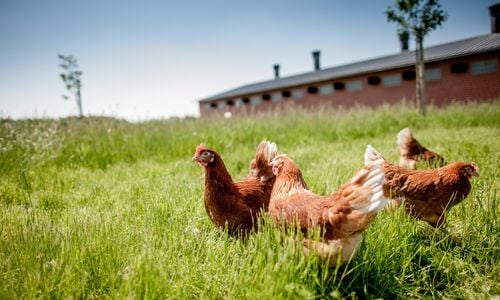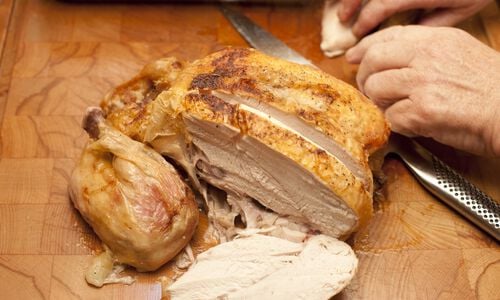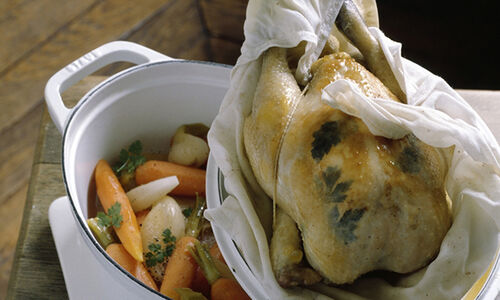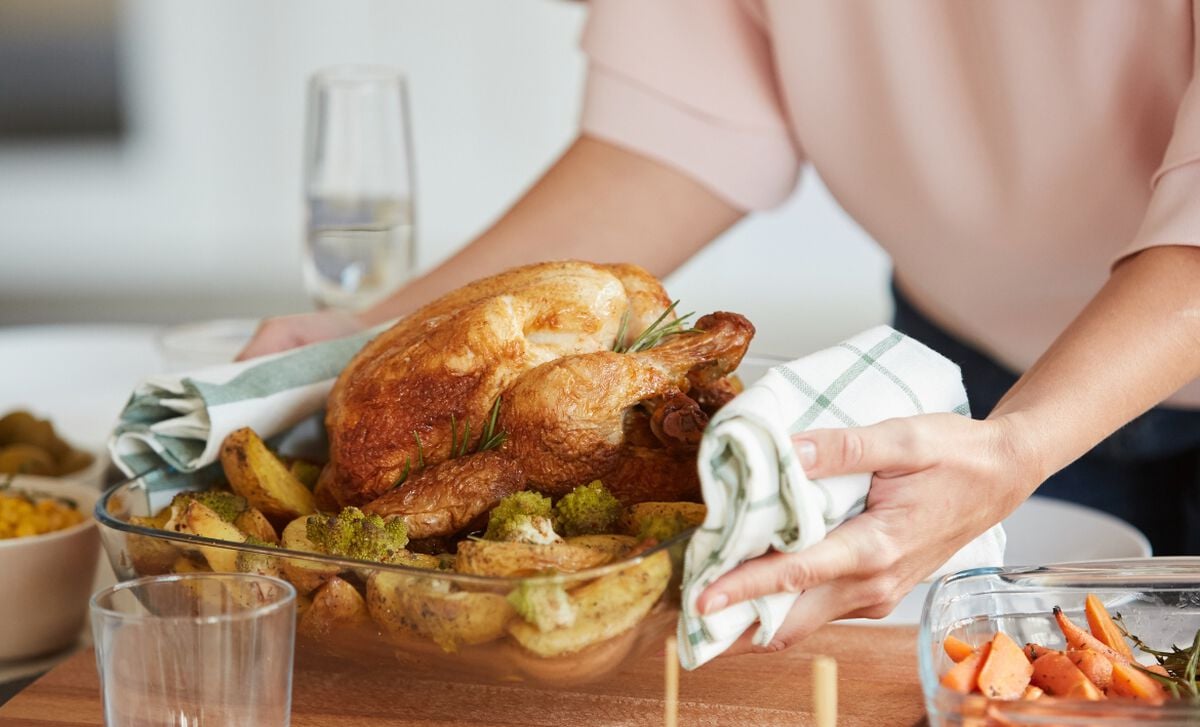
On the Seventh Day We Roast
With no work or school, Sunday is the perfect day to roast a whole chicken. The smells will permeate the kitchen, and waft through the house, spreading the message that a delicious meal is on the horizon. The hour or so the chicken spends in the oven will give you time to toss a side salad, boil and mash potatoes or sauté a seasonal vegetable in a little duck fat (add some of the basting juices from the chicken, if you have enough to spare).
Start with the Best Chicken
In our opinion, when roasting a chicken, it’s best to begin with a quality bird, like our free-range, organic chicken, or Green Circle chicken, because, in this simple cooking method, the meat can’t hide behind breading or “secret spices.”
Our birds taste like chickens are supposed to: succulent, tender, and well, chickeny. That’s because they are raised by Amish and Mennonite farmers with humane husbandry protocols, organic feed, and pure spring water. The care they take at the farms can be tasted on the plate. With crispy skin and moist meat, the roasted chicken you make on Sunday may not make it to leftovers on Monday!
How to Get Extra-Crispy Chicken
For those who like fried chicken, but don’t want all the breading and deep frying, broiling is an ideal option. This will require that you break the chicken down into pieces first. Put some duck fat on the bottom of a cast-iron skillet. Coat the pieces of chicken with sea salt and pepper to taste, and scatter a few garlic cloves in if you wish. Broil these pieces until very crispy. If a lot of fat and liquid has accumulated at the bottom of your pan when you flip the pieces, drain it a bit, leaving enough to prevent sticking. Salt and pepper the underside and place back in the oven.
This broiled chicken is incredibly crunchy without a touch of breading. As an added bonus, the leftover meat can be made into chicken salad for Monday’s lunches, and the carcass will be the perfect base for homemade chicken soup.
Make it a Traditional Sunday
In the mid-1500s, when King Henri IV left his native Gascony to serve as King for all of France, he brought a passion for his region's food, including the classic coq au vin. He famously stated that he wished for a kingdom so prosperous that all the peasants could afford a chicken in a pot every Sunday.
Hearkening back to King Henri IV, it is quite common in a French kitchen to see a chicken stewing in a pot on Sunday. While the classic coq au vin recipe typically uses a rooster, we prefer a capon if feeding a crowd, or a chicken, as in our coq au vin recipe, with full-bodied red wine and our tasty duck and veal demi-glace. Why not take a leisurely Sunday to prepare this iconic French dish for your dinner? If you have leftovers, look at our ideas for how to enjoy them.
Bonus Round
One of the many benefits of cooking a whole chicken is that you can reserve the bones and make chicken stock, which can wait in the freezer for soup weather. Chicken stock is just a simple broth, made with bones, water, celery, carrots, and onions, and reduced for several hours.
Collect the bones from several chicken feasts (keep them in a sealed bag in the freezer until you are ready to use them) to make a rich broth that can serve as a base for soups of all kinds, add nuance to sauces, liven up pasta dishes, and bring depth to sautéed vegetables. Any chef will tell you that one of the secrets to restaurant cooking is using stock instead of water, as the base of sauces, gravy, and in almost everything that can benefit from the rich flavor.
